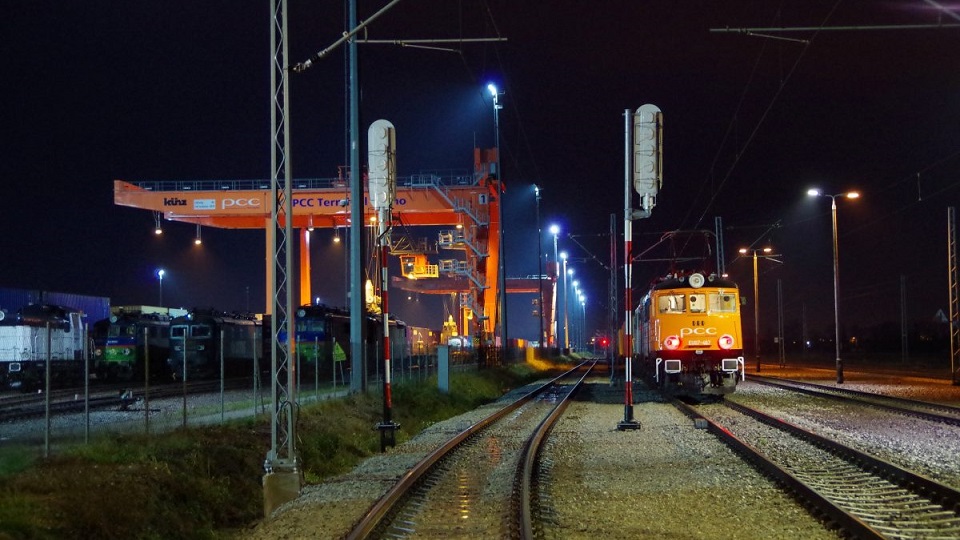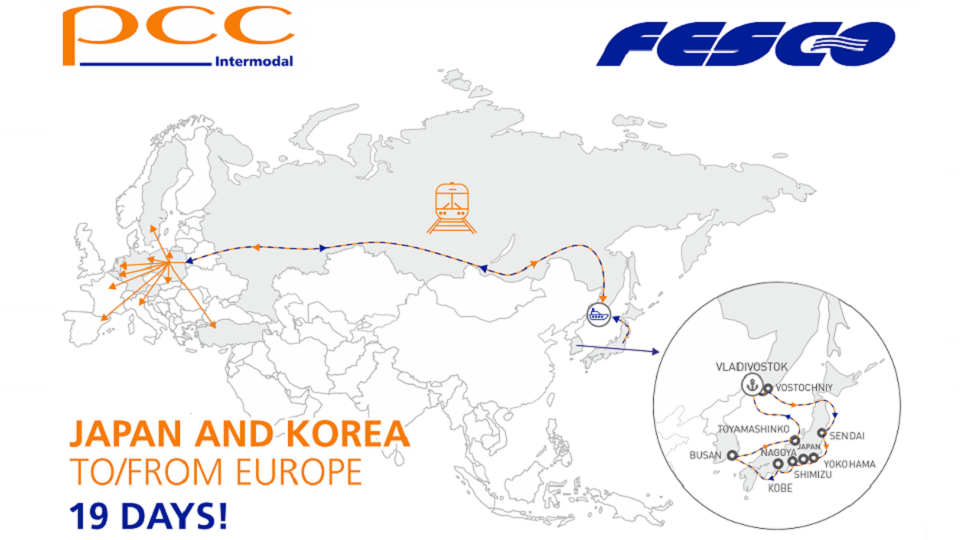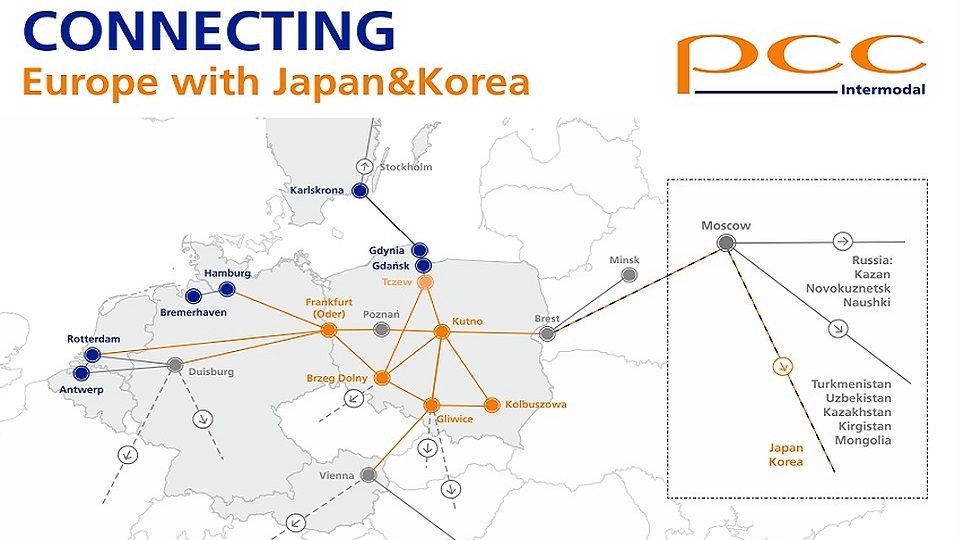Japan/South Korea – Europe multimodal route has options for new branches

This September the recently tested multimodal route between South Korea and Poland becomes a regular service. It already has the potential to be extended with new branches. Katarzyna Uklejewska-Krawczyk from PCC Intermodal explains the main features of the multimodal route and its prospectives.
The history of the new route started a year ago when the test multimodal connection between Japan and Poland was launched. In May 2019 the sea-rail service from Yokohama to Wroclaw was organised by RZD Logistics, FESCO and PCC Intermodal on a regular basis. This summer the route received a new branch – to South Korea. At the end of June, the test containers departed from the South Korean port of Pusan towards Poland.
Regular
Soon, the South Korean multimodal service will be provided regularly. “Starting from September, the first product will be officially announced to the market and fully available on regular basis for all the producers and importers”, Uklejewska-Krawczyk from PCC Intermodal said.
Her company, a Polish subsidiary of the Duisburg-based chemicals, logistics and energy corporation PCC SE, has provided intermodal services in Poland since 2005. It is also FESCO’s official partner and the only agent in Europe. Therefore, PCC Intermodal is responsible for the Polish section of the multimodal route between South Korea and Europe.
Text continues below the picture.

The Japan/South Korea – Europe multimodal route, source: PCC Intermodal.
New Cherry Road
Katarzyna Uklejewska-Krawczyk notes that the new regular service will be offered to the customers twice a week. Such a schedule will be available until the end of the year. Afterwards, RZD Logistics, FESCO and PCC Intermodal will discuss the option to increase the frequency. Eventually, it depends on freight volumes on the New Cherry Road. In such a half-joking way, PCC Intermodal names the new Japan/South Korea – Europe service. This name was inspired by the Japanese and Korean tradition to admire the cherry blossom.
The brand new service includes three modes of transportation. Initially, the containers are delivered from South Korea (or Japan) to the Russian seaport of Vladivostok using the shipping lines of FESCO. Then they are transported by rail to Poland via Trans-Siberian Railway and Belarus. At the Brest/Malaszewicze railway border crossing, they are reloaded from flatcars compatible with the Russian gauge (1,520 millimetres) to wagons running on the European gauge (1,435 millimetres). The final railway point in Poland is Brzeg-Dolny station in 30 kilometres northwest from Wroclaw. The third mode of transportation, lorries, is used for the last-mile service in order to deliver the containers from Brzeg-Dolny railway station to the customer’s warehouse in Wroclaw.
Text continues below the picture.

PCC Intermodal connections in Europe, source: PCC Intermodal.
Across Europe
The test journey on the Japan/South Korea – Europe multimodal route took 21 days. However, Russian Logistics intends to perform the service within 19 days: 2 days are required for the sea transportation between South Korea and the port of Vladivostok, 2 days – for ship-wagon handling and customer proceeding in the port, 10 days – for rail transportation from Vladivostok to Brest, 2 days – for wagon-wagon handling and customer proceeding, the remaining 3 days – for rail-lorry transportation within EU.
PCC Intermodal states the delivery time depends on the final destination. Currently, both Japanese and South Korean multimodal solutions terminate in Wroclaw. However, the containers from these Asian countries could be delivered to other European cities thanks to the rail connections of PCC Intermodal. “From the Polish/Belarusian border, PCC Intermodal ensures the intermodal connections to all most important European destinations,” Uklejewska-Krawczyk adds. As a result, the freight could be supplied from Poland to Germany, the Netherlands, Belgium, Austria and Sweden including such important logistics hubs as Rotterdam (seven times a week), Antwerp (six times a week), Hamburg and Duisburg (five times a week to each destination).
No limits
With the help of the test South Korea – Poland multimodal service, products of the electronic industry have been transported. This type of freight will remain the main one when the logistics solution becomes regular. At the same time, PCC Intermodal expects to attract other cargoes.
“We see a lot of different industries are interested to test the alternative way of transport like machinery, vehicles and spare parts. Containers make no limits, it is possible to transport almost all kinds of goods”, Uklejewska-Krawczyk specifies. The total market between Japan/South Korea and the EU is estimated at more than 5 million TEUs a year. “Even a small share of this amount can bring quite a good volume to railway connection”, she adds.
European Silk Road Summit
Do you want to know more about the New Silk Road and the connection to Japan? On 26 and 27 November the European Silk Road Summit takes place in Venlo, the Netherlands. Representing PCC, Dariusz Stefańsk will present the new intermodal connection between Europe, Japan and Korea.
At this two-day international event more than 35 speakers and around 250 delegates will share their experiences, expertise and latest news. Registration for the event is now open. The programme and speakers can be found on the website.
You just read one of our premium articles free of charge
Want full access? Take advantage of our exclusive offer





